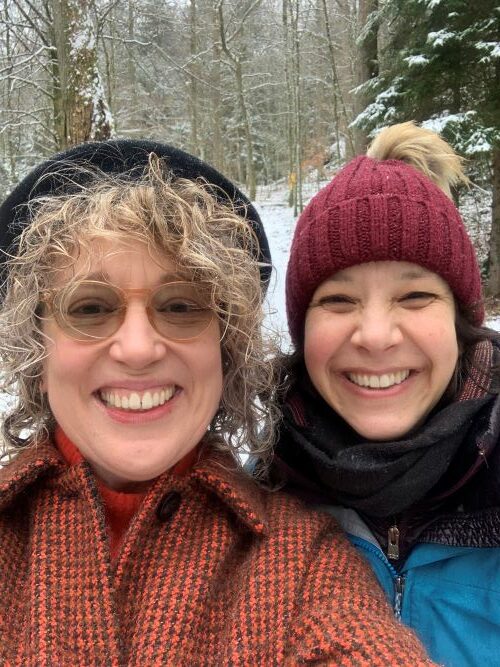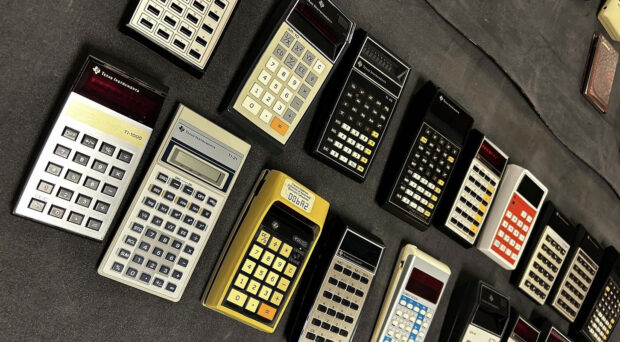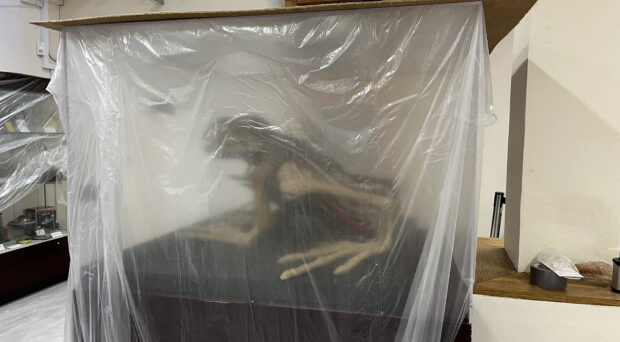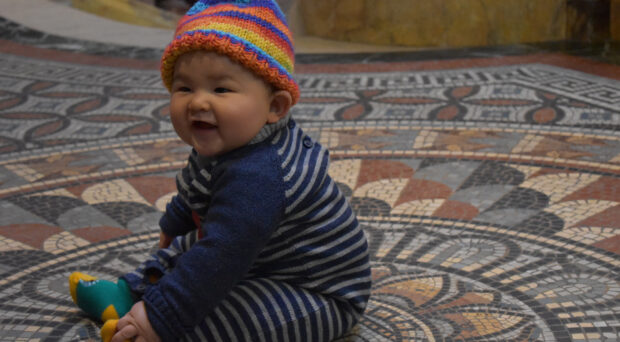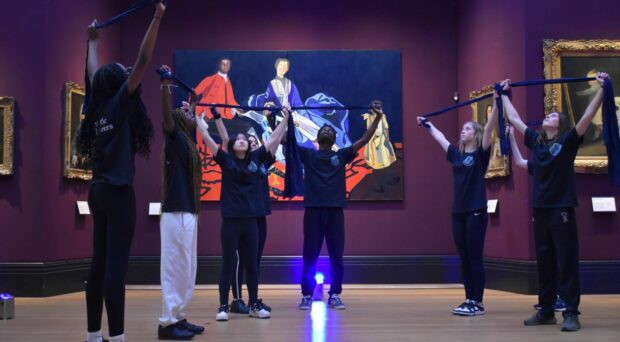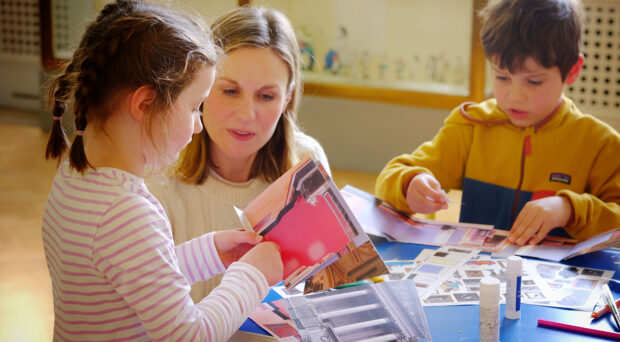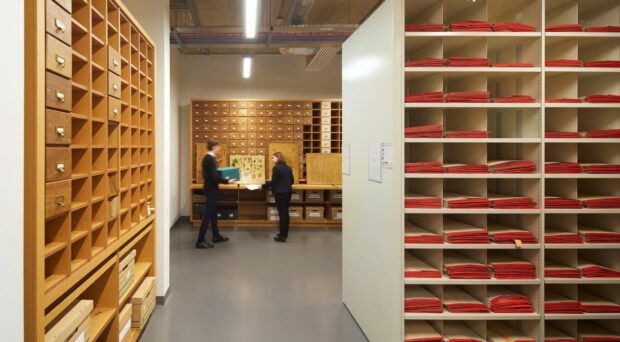Women who have worked or work in the sciences were invited to spend a creative afternoon at the Whipple Museum of the History of Science getting hands-on, and exploring their experiences of this field.
This workshop was both a pilot for research to develop an artistic residency project, and a way of increasing audience awareness of the Whipple collection, and especially the story of women scientists within this.
As many women working within the field of science have faced challenges as a result of gender inequalities, this project used a zine-making workshop as a means of exploring these experiences and stories. The workshop was also designed to highlight women scientists featured in the Whipple’s collection.
The workshop was facilitated by artists Katherine Van Uytrecht and Katy Drake, and Whipple Museum’s Learning Coordinator Alison Giles. A public call out was made inviting any woman who has worked or is working in the field of science to participate; and an intimate group of participants gathered on a cold and bright Saturday afternoon at the Museum.
The three hour session started with a brief presentation by Kath and Katy on the history of zines in activism, highlighting interesting examples of Zines which were on display. Alison then led an entertaining and illuminating tour of the collections, focussing on the history of women’s work in the Whipple which sparked the start of discussion between participants of their own experiences. Participants were then guided using collage and printmaking to make their own zine.
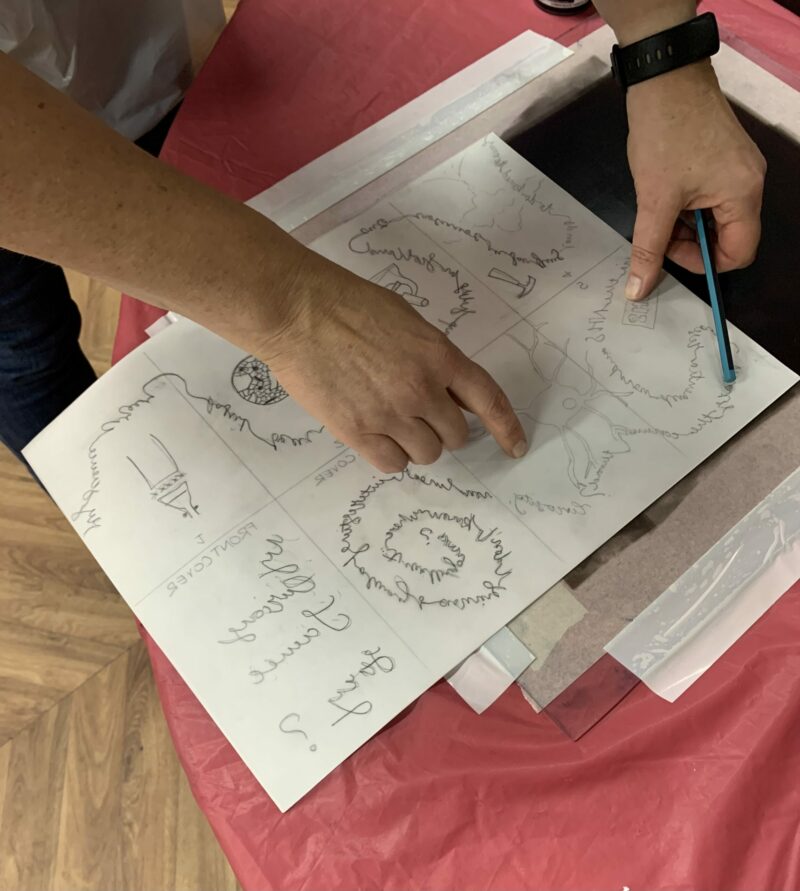
Each participant was empowered to express what they wanted to say, regardless of expectation, and to challenge the power play dominant in the sciences.
Questions prompts to the group included:
What is your experience as a woman entering or trying to enter the sciences? Did you face any challenges due to gender inequalities? What does it feel like to be heard or unheard? What does it feel like to be respected or disregarded? What does it feel like to be hidden or silenced?
At the end of the workshop the participants were invited to share what they had made, and the experiences that had prompted the content for their zines.
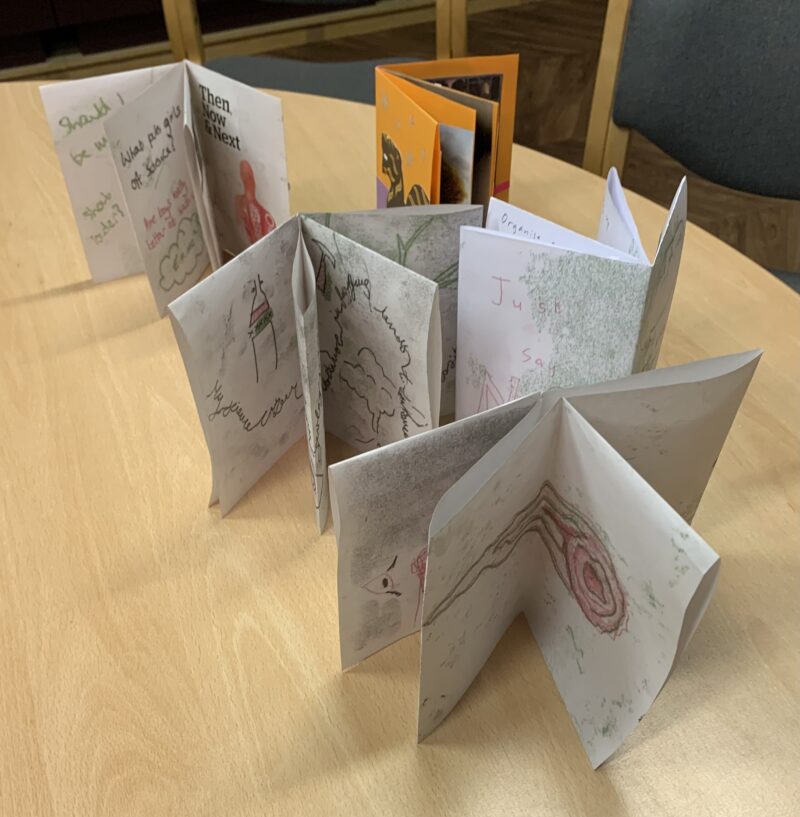
Through our joint projects we have come to realise that sharing personal experiences using zines helps to give others agency to express their own experiences. This can be a radical way to create change through the highlighting of particular issues. Sharing offers a community where one can freely express their views while reducing feelings of isolation. We see this as a starting point for social justice to begin.
In this workshop we discovered that it is not only the direct making of zines that gives voice and agency to participants but that the environment of the workshop and the making of zines serve as a device to open conversation and explore ideas. It is this opening of conversation and creating dialogue that we found most interesting and wish to explore further in our residency.
Most of the participants in this workshop had positive and affirming experiences to share. They also were aware of how certain privileges and particular environments may have contributed to this. As the discussion went deeper, there were lots of questions and ideas around how to include a broader range of people in a future workshop.
Going forward, the residency would include visual responses to items in the Whipple Collection as well as workshops for the public. Following feedback from this workshop, one of our intentions for the residency is to engage a varied group through targeted participation.
Anyone wishing to help fund the residency or with any funding ideas please get in touch with Alison Giles at are26@cam.ac.uk.

